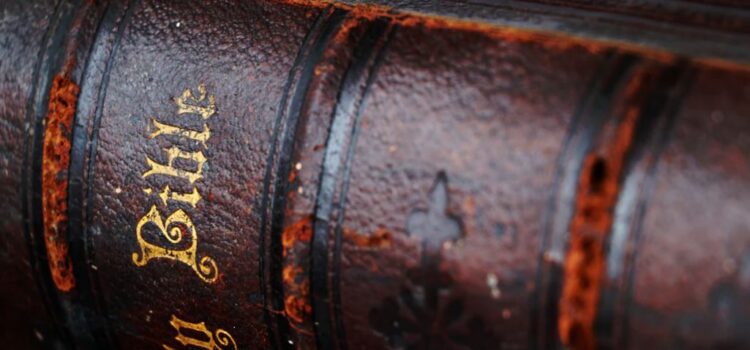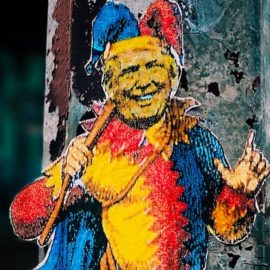
What role did religion play in Abraham Lincoln’s life? What did he believe?
In And There Was Light, Jon Meacham writes about America’s 16th president. Meacham emphasizes Abraham Lincoln’s Christianity, and he frequently refers to Lincoln’s religious beliefs to explain how they helped guide Lincoln’s thoughts and actions.
Keep reading for an inspiring discussion of Lincoln’s Christianity.
Abraham Lincoln’s Christianity
Abraham Lincoln was raised as a Baptist, an offshoot of Protestantism. Meacham says there was a strong connection between Lincoln’s Christianity and his morality. Specifically, Lincoln believed that his conscience was God speaking to him; therefore, doing the right thing was synonymous with doing God’s will. He also believed that God called upon all humans to be fair, merciful, and loving to one another. That conviction would guide many of Lincoln’s actions, both in politics and in his private life.
(Shortform note: How did Lincoln’s upbringing and early religious beliefs shape his religious beliefs later in life? Sources vary on exactly what Lincoln personally believed as an adult—even his wife, Mary Todd, gave conflicting stories about his religious beliefs. What most historians do agree on is that Lincoln devoutly believed in God but took issue with religious dogma; as an adult, he never formally joined a church because he didn’t find one whose teachings he fully agreed with. Lincoln also believed that the endless arguments over the “correct” ways to worship distracted people from what he still believed to be the true purpose of religion: revering God and loving one another.)
In addition to shaping his morality, Lincoln’s religious upbringing influenced his political views: Many Baptists opposed slavery, and abolition was a common topic in conversations and sermons.
(Shortform note: Though laypeople often use the terms interchangeably, abolition and emancipation are not the same thing. Abolition means outlawing the entire practice of slavery, while emancipation specifically means freeing enslaved people. To highlight the difference between the two, consider a hypothetical situation where enslaved people are emancipated but slavery isn’t abolished: Enslavers would have to free the people they currently enslave, but it would still be legal for them to buy or enslave new people.)
Furthermore, the Lincolns belonged to a religious organization called the Baptist Licking-Locust Association Friends of Humanity, which was dedicated to emancipation—in other words, freeing all enslaved people in the US.
(Shortform note: There wasn’t an official Baptist stance on slavery during Lincoln’s childhood. However, there was a strong anti-slavery sentiment among many Baptists, as evidenced by organizations like the Friends of Humanity, which would not accept enslavers as members. In 1845, the growing schism between Baptists who supported slavery and those who favored emancipation led to the Southern Baptist Convention breaking away from the main body of Baptists. However, the Southern Baptist Convention officially denounced and apologized for its racist history in 1995.)
Lincoln’s Christianity During His Early Political Career
Lincoln not only shared his viewpoints orally but also in writing—some of which stirred up controversy. Meacham says that—despite his Baptist upbringing—Lincoln at times openly questioned his faith. For instance, in the early 1830s, he wrote an essay exploring the contradictions within Christianity’s teachings. That essay was widely read and talked about until a friend of Lincoln’s took the manuscript and destroyed it, saying it was unwise for someone with Lincoln’s political ambitions to be associated with such unpopular and radical ideas.
(Shortform note: The exact contents of Lincoln’s essay about Christianity—or whether such an essay even existed—is an issue of some debate among historians. Some Lincoln scholars point out that there are no firsthand accounts of anyone reading that essay or listening to someone else read it. An alternate theory is that Lincoln wrote an essay defending his personal view of Christianity, but not attacking the religion itself. However, there is firsthand evidence of people using Lincoln’s supposed lack of devotion to hurt his reputation: For instance, in 1846, one of Lincoln’s political opponents spread rumors that Lincoln openly scorned Christianity and the Bible’s teachings. Lincoln wrote a letter specifically to refute that rumor.)
Lincoln’s Christianity During the Civil War
Meacham says that, during the Civil War, Lincoln wondered whether God would favor the Union or the Confederacy. In other words, Lincoln came to view the war as a religious and moral struggle, not just a military one; he believed God would ensure victory for whichever side was morally right.
This heightened interest in religion came after Lincoln’s son Willie died of typhoid fever in February of 1862. Lincoln sought comfort in attending church and in the idea that every event in the world—even Willie’s death—was part of God’s plan.
| Finding Religion During Hard Times? Meacham portrays Lincoln as a deeply religious man, even if he had some concerns about Christianity. However, some historians question whether Lincoln was a Christian at all. For example, a letter from a former business partner of Lincoln describes him as a Theist and Rationalist—in other words, someone who believes that God exists, but sees no evidence that God interferes in earthly affairs. Notably, though, that letter was from an earlier period in Lincoln’s life. It wouldn’t be surprising if the combined stresses of his presidency, the Civil War, and Willie’s death pushed Lincoln to more fully embrace Christianity. In fact, people commonly turn to organized religion to find comfort or look for meaning in a loved one’s death. Some studies show that strong religious beliefs can help people overcome grief more quickly. |






